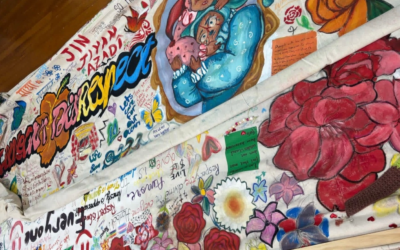For many of us, we have passing interactions daily, or to get in touch with a friend or loved one, they’re only a few key presses away. Despite this, a simple truth can transform the experiences of the people we interact with and leave a mark on those around us: caring for others with empathy.
The person you’re in the elevator with might become a long-time friend, a potential business partner, or even a connection that could change your career.

Credit: Henri Mathieu-Saint-Laurent | Pexels
If you share, I will listen. If you listen, I will share.
Edgar Dale’s Cone of Experience suggests that we will remember only 10% of what we read, 20% of what we hear, and 90% of what we do. In other words, whether you converse with your peers, employer, co-workers, or spouse for 10 minutes, they are likely to only retain less than half of what you’re saying. So, how can we make sure these interactions are as meaningful and memorable as possible?
According to Marshal Rosenberg, PhD psychologist and founder of Nonviolent Communication, empathic listening to other people’s needs, and honesty in communicating our needs to others are two key elements of successful and compassionate communication.
Empathic listening goes beyond simply hearing words – but also involves making a genuine effort to connect with another person emotionally. In Michael Sorensen’s book I Hear You: The Surprisingly Simple Skill Behind Extraordinary Relationships, he speaks on how truly good listeners do more than just listen.
“They listen, seek to understand, and then validate. That third point is the secret sauce—the magic ingredient,” says Michael.
This is the essence of empathic listening, which can involve rephrasing what someone has said to understand further, acknowledging what they must feel, and asking open-ended questions.
Active listening may not feel natural to all of us, although it is a skill we can all use to grow. Regardless of who you’re interacting with, when a person feels heard and valued, this builds trust and can be crucial to steering clear of misunderstandings.
Becoming the Best Version of Yourself
Research shows that gratitude and empathy are closely linked to each other.
When we allow ourselves to remain pessimistic, we can inadvertently project those anxieties onto those around us. This destructive behaviour has the potential to derail any relationship. However, we can dismantle these behaviours.
Renowned psychologist and best-selling author Dan Ariely introduces the concept of ‘self-signaling’ in his book, The Honest Truth About Dishonesty. According to this idea, our behavior defines us, rather than how we define ourselves, determining our behavior.
When we consistently display acts of generosity, we naturally become more generous. Regularly expressing gratitude to others ingrains it within us, and we eventually begin to genuinely feel it.
In saying that, it is important that we not only show gratitude to others, but also to acknowledge our own small wins and accomplishments. Once our cup overflows with gratitude, we can continue to share it with others and exhibit greater empathy towards others.

Credit: Fauxels | Unsplash
The Gift of Growth
Taking the time to reflect on our life experiences offers profound benefits. It allows us to organise our thoughts, process our emotions, consciously respond to them, and discover new avenues of mindful communication.
The methods I have shared in this piece have not only transformed my relationships, but also shaped my perception of self. You can start implementing them in your own life immediately, witnessing the positive impact they can have.
Now, I encourage you to take out a piece of paper and write a letter. Address it to yourself, a family member, or even a stranger. Approach it with compassion and vulnerability, for this simple act has the potential to profoundly touch someone’s heart.

Credit: Priscilla Du Preez | Unsplash



